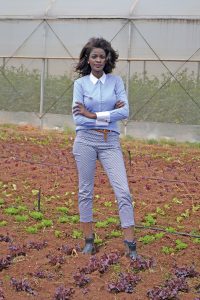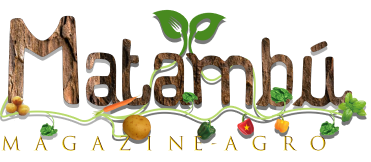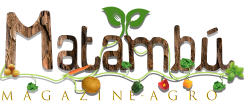[ad_1]
As a brand new producer with no prior information or expertise of farming, Vutlhari Chauke of VT Harvest has leaned closely on her enterprise abilities and her willingness to be taught. Her method is paying dividends for her Gauteng-based vegetable and herb farm.
Photo: Susan Marais
Vutlhari Chauke, a 34-year-old first-generation farmer, is passionate concerning the worth of training. And it’s a ardour borne out by her personal tutorial document.
She obtained 5 distinctions in matric earlier than learning on the Central University of Technology within the Free State. She then went on to receive an MBA from the University of South Africa’s Graduate School of Business Leadership in 2014.

Today, Chauke runs VT Harvest, a peri-urban farm that specialises within the manufacturing of greens, herbs, and high-value crops.
Limpopo-born Chauke had no agricultural expertise when she left the consolation of Sandton’s boardrooms in 2017 to begin farming. What she did have was a thirst for information and a pair of palms that she didn’t thoughts getting soiled.
“I’ve moved around in the corporate world and have learnt a lot,” she says. She labored primarily for JSE-listed firms within the logistics and journey and tourism sectors and, because it seems, the information she garnered alongside the way in which has proved invaluable to her farming enterprise right now.
“Previously, I had to telephone round and discover out what shoppers wished. This is strictly what I’m nonetheless doing right now.
“I discovered that agriculture wasn’t as daunting [as I thought] once I just started doing it.”
Chauke provides that enterprise rules are common, with the important thing being to make sure that your bills aren’t greater than your revenue.
A direct and oblique provide
Chauke’s GlobalGAP-certified produce will be present in a number of the most high-end eating places in Johannesburg, together with an upmarket Sandton lodge.
“I don’t supply them directly; I focused on becoming a supplier to their suppliers,” she says, though she does provide straight to just a few different eating places.
READ The game-changing ardour fruit cultivar developed in SA
To this finish, she determined to merely cold-call potential shoppers and take baskets of her produce to them, and that’s how she landed a cope with Dew Crisp, by way of which a lot of her product is distributed. In the identical means, she has grow to be a tomato provider to restaurant chains reminiscent of Nando’s and McDonald’s.
In addition, her produce will be present in grocery shops in Dunkeld, Fourways and Honeydew. She can also be pleased with the truth that her merchandise will be purchased from road distributors, as she sells straight to hawkers who go to her farm.
“A lesson I’ve definitely learnt from COVID-19 is that I have to spread my risk. When the restaurants were closed [due to lockdown-related restrictions], I suddenly lost a lot of clients and had to find a new market for my produce.”
She believes that this has served to strengthen her enterprise mannequin.
“The beauty of having direct customers is the fact that I’m able to receive the best prices, and it’s also a winning cash flow strategy,” explains Chauke.
She provides that it may be very limiting for a small enterprise to cope with 30-day accounts, and her technique frees up her capital instantly. After each harvest, Chauke invests extra in her farm. She can also be open to listening to her shoppers’ wants.
“Without entry to the market, farming could be a waste of time and sources. The greatest means of understanding what a consumer desires is to ask them to open up their fridges to me. This is how I conduct a whole lot of my analysis.
“If [a certain product] is found in a client’s fridge, then I know I can produce it and have a market. If five clients want to buy that product, we’re in business,” she says.
On the farm
VT Harvest is positioned within the Tarlton Agri-Park on Gauteng’s West Rand. The complete park consists of 200ha of land, which is leased rent-free by the Mogale City Local Municipality to farmers.
Chauke was given the best to farm on 1,5ha of this land. “In exchange for the land, I’m obligated to employ [people from the local community],” she explains, including that she can also be answerable for paying for the farm’s electrical energy utilization.
READ Floating photo voltaic panels: producing energy and saving water
“Government has really gone out of its way to support us. This is not a lifelong agreement, though; it’s available to farmers for only three to five years to help us find our feet. After that, we have to be able to stand on our own.”
Production
On Chauke’s 1,5ha are 10 greenhouse tunnels geared up with drip and overhead sprinkler irrigation programs. Between 10 000 and 15 000 seedlings are planted per tunnel. Even the areas between the tunnels are planted to herbs and lettuce. She additionally has a small web home the place she grows okra and bell peppers.
The tunnels are used primarily for rising tomatoes, as they’ve an extended rising time, and any environmental injury may lead to consumers rejecting the produce.
“The tomato crop cycle is about six to eight months. By protecting them, we’re also able to increase our yield,” explains Chauke.
“The herbs and lettuce take only about six weeks to grow, and even after hail they can bounce back. So it’s less of a risk to grow them outside.”
She grows the spherical Lindsay number of tomato for McDonald’s, and additionally produces Tinker, an oval cocktail tomato. “[The latter] is the same variety they sell in Woolworths,” she says proudly.
She determined to develop the small selection for 3 causes. First, it’s not a crop that thieves are as thinking about stealing as they aim bigger tomatoes. Second, there are fewer farmers competing on this house. And, lastly, the value per kilogram that she will receive for cocktail tomatoes is much increased than what she receives for greater tomatoes.
READ ‘Go after what you want’ – classes from a younger spinach farmer
“I can earn between R10/kg and R14/ kg for big tomatoes, while the price jumps to between R40/kg and R90/kg for cocktail tomatoes,” she says.
The size of Chauke’s herb manufacturing cycle is 4 to six weeks in summer season, and six to eight weeks in winter.
“The production team is responsible for soil preparation, planting, weeding, irrigation and harvesting. Our production plan is prepared six months in advance to factor in crop rotation and seedling preparation.”
The herbs produced on the VT Harvest farm are rocket, mint, parsley, coriander, rosemary, thyme, chives and basil.
The crops are checked for pests twice every week, and sprayed with crop-protection chemical substances on Fridays, when required. The contemporary herbs are hand-picked each day, and solely the highest-quality produce is chosen for supply to prospects from Mondays to Fridays.
Employees
“An important quality in a leader is not being afraid to employ people who know more than you do,” advises Chauke, who says that the higher workers are at their jobs, the higher the enterprise will carry out.
She employs two males, each of whom are underneath 30, as managers.
“Don’t let their ages idiot you; they appear after their households by sending cash dwelling to their dad and mom, who nonetheless dwell in rural areas.
“They’re the right kind of people, and my right-hand men.”
She provides that she merely comes up with a imaginative and prescient, and they convey it to fruition.
“These young people take pride in their work and are passionate about learning. And I’m not just teaching them; I’m also learning a lot about farming from them, too.”
The different 4 everlasting workers are all ladies who’re underneath the age of 30.
“I truly believe that if you help a woman, you’re helping a family,” says Chauke, who admits that she goes out of her means to rent ladies to work on the farm.
“During planting season, I hire five more women. I want to employ many more women, because I know that the money they earn will be used to buy food and school shoes for their families. They’d rather suffer themselves if it means that their children can receive a proper education. This will bring about generational change for that specific family.”
She says it’s additionally essential to have an open thoughts when managing right now’s youth as workers.
“Young people like to work while listening to music on their cell phones. They always have headphones on. It bothered me in the beginning, but I thought I should just see where it was going. As it turned out, with headphones on, they perform better.” Her solely concern is that it ought to stay a protected working surroundings.
“In any corporate setting, it’s important to give people a good working environment.”
An infinite return on funding
“I’ve seen first-hand what a difference one person’s education can make,” says Chauke.
Her father is a pc programmer from the city of Giyani in Limpopo. “In the 1990s, he was a black computer programmer specialising in the COBOL programming language,” she explains. “It was unheard of!”
Her father was certainly one of 5 kids, and the one one who obtained an training. However, by way of him, each certainly one of his personal and his siblings’ kids and their grandchildren obtained an training.
Chauke’s mom certified as a instructor within the Nineteen Nineties, and each her dad and mom instilled a love of studying in her and her 4 brothers. They additionally nurtured in them a compassion for others.
“They taught me the value of hard work,” she says. “From a very young age, I knew that I wanted to be an entrepreneur. I had big dreams.”
She initially turned a farmer to make cash, however later realised that agriculture created employment and contributed to meals safety.
“My goal is to become a black woman farmer success story, where my brand is respected in the industry. I would like to leave a legacy for my children.”
Email Vutlhari Chauke at [email protected].
[ad_2]
Source link










